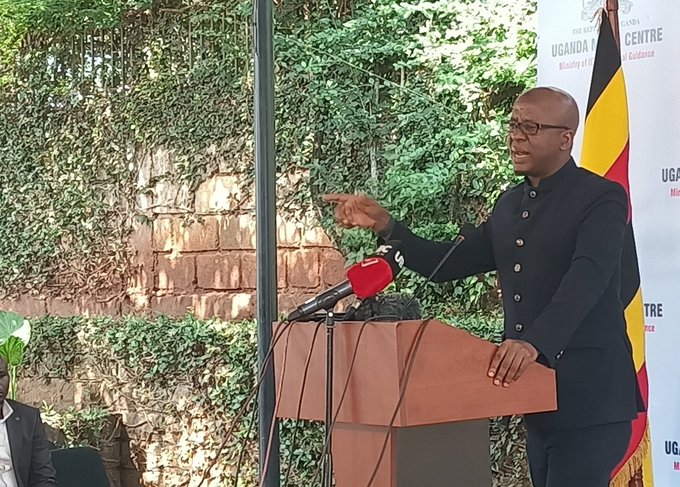
The Executive Director (ED) of the National Environmental Management Authority (NEMA), Dr. Barirega Akankwasah, has cautioned the public against encroaching on wetlands, saying that it is illegal and that a maximum penalty of 12 years in prison, a fine worth UGX 600 million, or both can be imposed on any offender.
Akankwasah revealed this development on Monday, June 24, 2024, while addressing the media regarding the eviction of encroachers from the Lubigi wetland at the Uganda Media Centre (UMC) in Kampala.
“It is an offense under Section 55 of the National Environment Act, 2019 to encroach on wetlands. This offense has a maximum sentence of 12 years in jail or a UGX 600 million fine, or both,” Akankwasah said.
He, however, said that before a person is removed from the wetland, they are issued with a restoration order in line with Section 133 of the National Environment Act, 2019, and that the order gives an encroacher 21 days within which to restore, leave, or appeal to court.
The ED said that Lubigi operation and restoration orders were issued, and people were warned to leave from February to April 2016 and April 2024.
He further stated that a total of 214 households have so far been removed, and more than 101 households are due for removal.
Akankwasah emphasized that the government cannot compensate encroachers, as this would not only invite more encroachments but also be a tacit approval of illegality.
According to NEMA’s ED, the nation has been working to stop the loss of wetlands and restore the damaged ones, adding that the most recent is the ongoing restoration of Lubigi ecosystems, along with other operations across the country.
He noted that Uganda’s wetland cover reduced from 15.6% in 1994 to only 8.9% in 2019 and showed a slight recovery, with the latest assessment indicating that the intact wetland cover has slightly improved to 9.3%.
NEMA’s ED clarified that a decision was made to halt development approvals in wetlands effective September 2, 2021, and continue until further notice to stop additional wetlands from being lost in Uganda.
He highlighted that some infrastructure in wetlands was established with due process of government approval, and removing them would result in liability to the government.
Other operations have been conducted in Lwera wetlands, Lurindo wetlands in Rukungiri, Akadot wetlands in Kumi, Kanyabukanja wetlands in Buhweju, Kole wetlands in Kole, Rwizi wetlands in Mbarara, and Kitagata wetlands in Bushenyi, among others.
Statistics show that the world has lost 71% of its wetland cover since 1900 and 87% since 1700. All continents of the world have lost their wetland cover significantly, with Europe at 56.3% and North America at 56% leading the carnage, followed by Asia at 45.1%, Oceania at 44.3%, and Africa at 43%.














